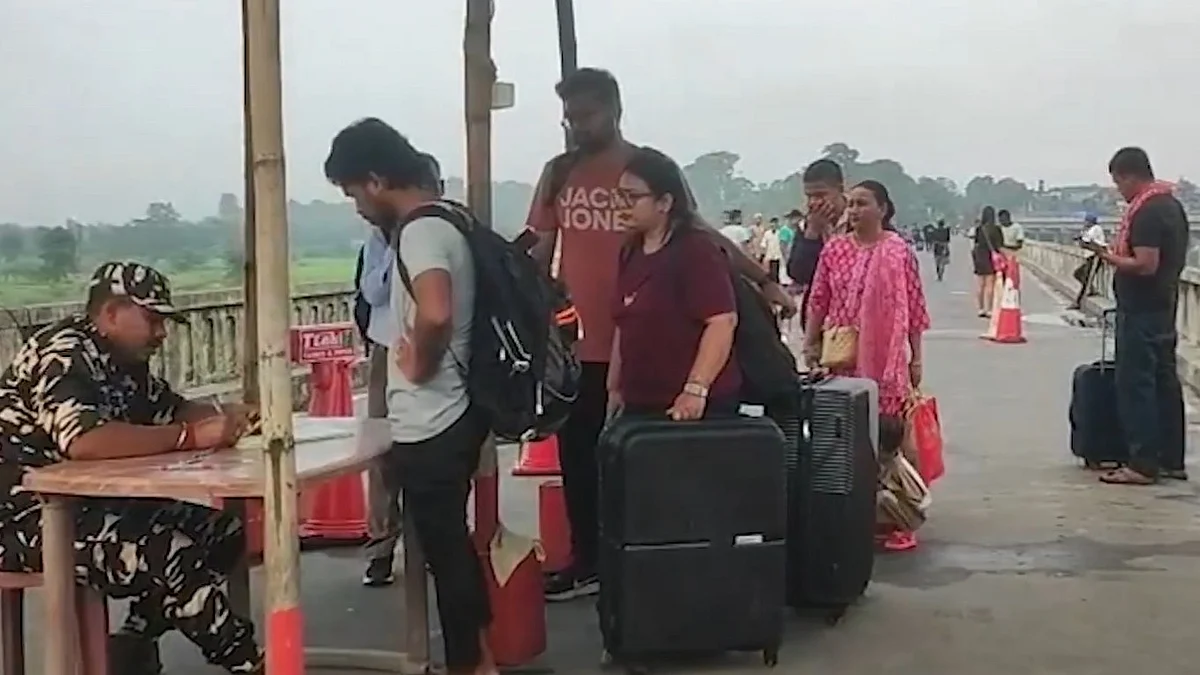Nepal border under tight surveillance as Delhi blast suspects may attempt escape
Residents in areas along the Nepal border have been instructed to immediately report any suspicious activity

Security and intelligence agencies have intensified surveillance along the Indo-Nepal border amid concerns that suspects linked to the recent Delhi blasts may attempt to flee the country through the porous frontier.
According to officials, intelligence inputs suggest that those involved in the high-intensity explosion near the Red Fort could try to escape into Nepal before moving onward to Pakistan, a route historically used by Indian Mujahideen operatives.
Authorities have yet to confirm the exact number of individuals involved in the attack. Investigations are underway, with those arrested in the Faridabad “white-collar terror module” being questioned for leads. While the interrogations have not yet yielded major breakthroughs, officials remain confident that crucial information will emerge.
Residents in areas along the Nepal border have been instructed to immediately report any suspicious activity. Border checks and patrolling have been significantly increased, with every movement being closely monitored.
Meanwhile, raids have been launched in Jammu and Kashmir’s Shopian district targeting overground workers suspected of aiding the revival of terror groups. Investigators believe the Faridabad module, allegedly linked to the Jaish-e-Mohammad, received logistical and ideological support from Kashmir-based operatives.
One of the key figures under scrutiny is Maulvi Irfan Ahmed, who is believed to have spearheaded a radicalisation drive and recruited several individuals into the network. Investigators suspect the Delhi blast is directly connected to this module.
Officials believe the incident marks a strategic shift by Jaish-e-Mohammad, which is reportedly redirecting its operations towards India’s heartland as heightened security in Jammu and Kashmir, particularly after the Pahalgam attack, has made it increasingly difficult for terror outfits to operate there.
Raids in Kashmir have also focused on the residences of Jamaat-e-Islami members, with intelligence sources indicating that some individuals within the group have maintained close links with Pakistan-based handlers. The Jamaat, which gained renewed strength in Bangladesh after the fall of Sheikh Hasina’s government, is suspected of collaborating with the ISI to rebuild terror networks targeting India.
Multiple agencies are currently involved in the widening probe, which is looking beyond the Delhi explosion to uncover what officials describe as a “large-scale terror conspiracy.” The massive cache of explosives recovered from arrested suspects suggests that the group had planned a series of coordinated attacks across the country.
A Forensic Science Laboratory (FSL) team revisited the blast site on Tuesday, collecting two cartridges, including one live round, and samples of two types of explosives. In total, 40 samples have been sent for detailed analysis to determine the composition and origin of the materials used in the attack.
Follow us on: Facebook, Twitter, Google News, Instagram
Join our official telegram channel (@nationalherald) and stay updated with the latest headlines
